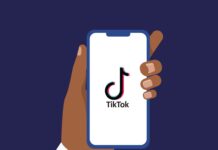A European-backed nonprofit browser, Ladybird, just hit a major technical milestone, making it eligible for iOS. This achievement, reached on October 5 by passing Apple’s 90% web platform testing requirement, comes at a time when the very idea of a browser is being transformed by Silicon Valley.
Tech giants are racing toward automation, with OpenAI releasing ChatGPT Atlas on October 21 and Perplexity launching its Comet browser in July.
Ladybird: A Focus on Open Standards
Founded by Andreas Kling alongside GitHub’s creator Chris Wanstrath, Ladybird is a different kind of project. It’s building its code from the ground up, deliberately not borrowing from the engines of Chrome, Safari, or Firefox.
This nonprofit approach, which gained sponsorship from Cloudflare in September, is attracting companies that want to be independent of the Google and Apple ecosystems. After all, Chrome controls 65% of desktop browsing globally, while Safari holds 16%.
Kling describes the progress as “steady grinding over 365 days.” The project ranks fourth in web platform tests, right behind the big three. The focus is on web standards first, ensuring websites render consistently without needing special tweaks.
This commitment shows: while Chrome scores 94 out of 100 on Acid3 browser tests, Ladybird reportedly passes all 100. Often, established browsers sacrifice perfect compliance for mobile optimization.
The Rise of AI-Powered “Agent Browsers”
While Ladybird focuses on standards, the giants are focused on automation. Operators view these new “agent browsers” as AI distribution pipes, and controlling that doorway grants enormous power.
OpenAI’s Atlas, for example, can book appointments and compile research automatically. Perplexity’s Comet assistant summarizes emails and manages tabs. Anthropic even piloted Claude for Chrome in August with 1,000 users, letting it handle calendar tasks and draft emails.
This convenience comes with a catch. Personalisation often requires surveillance. Atlas, for instance, features “browser memories” that log websites visited, making privacy negotiable.
The Automation Dilemma: Speed vs. Security
These new tools promise efficiency, but security researchers warn that prompt injection attacks remain unsolved.
Malicious websites can embed hidden instructions to manipulate the agent’s behavior. OpenAI’s own security officer, Dane Stuckey, acknowledged that adversaries will exploit these issues.
While companies are making progress (Anthropic reduced prompt injection attack success from 23.6% to 11.2%), vulnerabilities remain. The race toward automation is happening faster than security solutions can be developed, turning users into testing grounds for unproven technology.
A Massive Resource Gap
This new world exposes a huge imbalance between the two approaches.
ChatGPT serves 800 million weekly users. Perplexity processes over 100 million searches weekly and operates at a $9 billion valuation.
In contrast, Ladybird runs on eight paid engineers. Its funding comes from donations, with no monetization plans. Building a browser engine from scratch is expensive and slow. Kling acknowledges Ladybird’s performance currently lags competitors by 10 times, as correctness comes before speed.
While volunteer momentum is strong (Ladybird merged 319 pull requests in July from 47 contributors), commercial browsers operate massive teams funded by search deals and advertising revenue. Breaking the 85% market share held by Chrome and Safari requires a compelling advantage.
What Happens Next?
Even with its technical win, Ladybird faces a long road. The project targets an alpha release in summer 2026 for Linux and macOS.
Getting onto iOS isn’t simple, either. Kling speculated that Apple’s Digital Markets Act compliance might mean alternative engines only work in European app variants. While European regulations opened a space, the implementation keeps that space narrow. Meeting the 90% threshold is a major step, but functional limitations still need solving.
The problem is timing. Ladybird’s technical achievement is real, but its relevance depends on when it arrives. Agent browsers are transforming how people interact with the web right now. Users must choose between corporate agents with known security flaws and an independent, standards-based browser that is still years away from being ready.
Keep up with Daily Euro Times for more updates!
Read also:
Rentier No More: AI, Tech, and Renewables
New Frontier of Creativity, Embracing AI Technology in Visual Art
K2 to the Rescue: AI Model Outsmarts France’s Mistral






